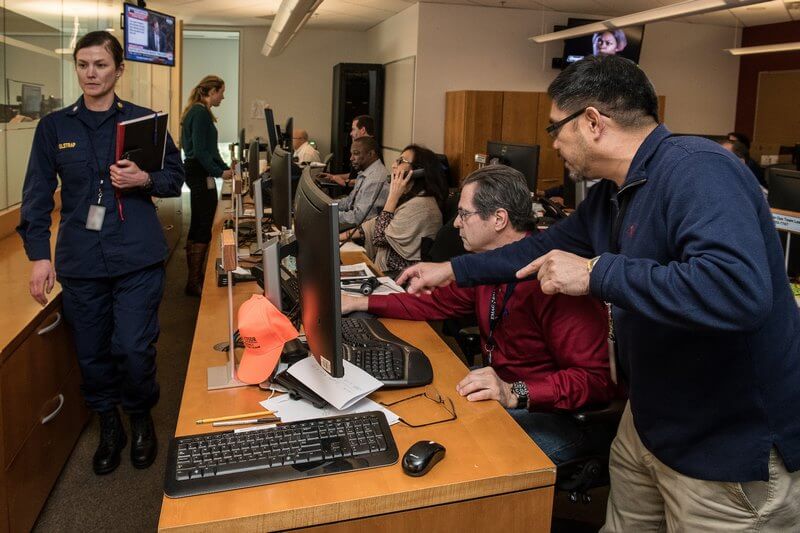
BCM gets a bad rap
Is BCM a sham? You likely had a similar experience. You are in a meeting with an executive or mid-level manager. After providing a kick-off presentation or results report, you get a question about why Business Continuity Management (BCM) is necessary to the company. Of course, this is when having a business continuity elevator speech to take out of your back pocket is helpful.
Throughout your career, you will face individuals who do not see the value of a business continuity program. They will want to create a plan and get on with their busy lives. Countering cynicism like this will mean providing metrics and examples to help your cause. Also, sharing examples of Return on Value (ROV) will make a case for you. In a previous blog, I shared What Resiliency Success Measures Look Like, which can help you prepare that argument. My guest articles by Kenton Friesen on Measuring The Maturity Of Your BCM Program, Part I and Part II, will also go a long way to helping you make a strong business case.

FEMA for companies
I believe that Business Continuity Management (BCM) gets a bad rap because of the mystification of technology. Because the discipline’s evolution came from IT, it has remained controversial. Like electricity, many Americans (I’m picking on my fellow citizens here) still do not understand how the internet works (or electricity). An article from Statista.com in 2019 shared that Americans Get a Failing Grade for Digital Literacy. We all know that most of our grandparents struggle with essential online or basic computer functions. Many adults are digitally illiterate.
With this against us, it is no wonder that many stakeholders fail to see the importance of emergency management and planning for business operations. At its fundamental, that is what business continuity is. When people ask me what I do for a living, I say that I do disaster work, like FEMA, for my company to help employees and operation going when a crisis happens. The explanation works pretty well most of the time.

Why company awareness and education is vital
Often, we get questions about why BCM is vital when our programs fail to broadcast our importance. James Green is an advocate for intelligent risk-taking. He made a good point recently in a panel I participated in with him for BCI World that resilience programs should partner with their marketing programs. He’s right. A significant failure of BCM and resilience programs is to rely on single personalities (i.e., the senior leader) or past successes to carry a plan forward.
A savvy crisis manager can tell you not to plan for your last event. Instead, you want to partner with your marketing team to develop campaigns and products to resonate with customers and employees. You want to win the hearts and minds of your constituency. If you are not doing this, you are missing the mark by not continually working to align with company objectives and long-term strategies. BCM and resilience programs remain relevant by pushing the envelope to train stakeholders to prepare for various scenarios. Then, we must make employees aware of the value of BCM and why it exists.

What to do if your program stumbles
Then, what can you do if you find yourself in a situation where it feels like the questions are asking–is BCM a sham? The first thing is not to panic. Don’t get defensive. That question occurs because you are facing a skeptical person who likely does not understand or see the benefits of continuity programs. Instead, take it as an opportunity to educate the individual about the work and its value to the organization.
Have your elevator speech ready and offer to meet with the person or group again to provide an overview of recent achievements and near-term goals. Even better, providing examples aligned with the stakeholder or department’s work is helpful, if possible. Doing this will establish a common baseline. Because at the end of the day, you are all trying to maximize profit for the business, even if you are not a profit center. Explaining that the role of the program is to minimize damage when adverse events occur and to get the business back to work as quickly as possible can go a long way. Then, have some success stories to share.

Let me hear your thoughts
Alright, I want to know what you think about this blog. Did what I shared resonate with you? Is your program doing an excellent job at awareness and training of employees? If so, share what has worked in the comments below for others to learn from. Or is there work to be done to embed BCM and resilience into the company culture?
Indeed, groups like Adaptive BCP have argued for significant changes in approach for some time. However, wholesale threats to program value are a particular matter. Regardless of the method, most resilience professionals agree on the importance of business continuity efforts, even if they differ in how it is delivered. Let me know your opinions in the comment section below.
Did you know?
Disaster Empire blogs contain embedded links to source materials, articles of interest, videos, books, and training I recommend you check out to expand your knowledge base. Just click on the blue embedded link to access the resource.
